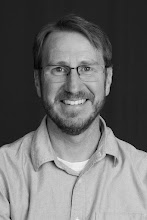Pastoral education has changed significantly since the 19th century. Historian William Westfall includes part of a letter penned by The Rev. Featherstone Lake Osler in a chapter of Learning to Practise: Professional Education in Historical and Contemporary Perspective. Osler's program of clergy apprenticeship appears to include a group of up-and-coming pastors learning from him in everyday life:
The following is the
plan I pursue with regards to them. At 6 a.m. they meet in my study for
Scripture reading. This engages them until half past seven, when we breakfast.
Afterwards they study ... until evening.... We take an early tea, after which I
give them three hours to correct their exercises, hear them read etc. By
this means none of my public duties [is] neglected, as I attend to [the
students] when my outdoor ... work is done.... On Sunday I send out two of them
to ... different outposts to read prayers, superintend the Sunday schools and
visit the sick.... One I keep home to assist me in my central Sunday school. (Westfall, 49).
Those eager students probably looked forward to that early tea!



No comments:
Post a Comment